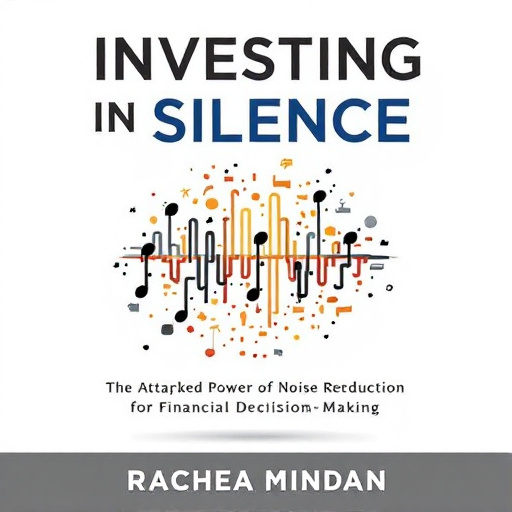Featured Articles
- Investing in Fantasy: How Video Game Economy Trends Are Shaping Real-World Investment Strategies
- Investing in Silence: The Untapped Power of Noise Reduction for Financial Decision-Making
- Investing in the Unusual: How Alternative Assets are Redefining Wealth Building in 2023
- Investing Through the Eyes of AI: How Machine Learning is Shaping Personal Finance Decisions
- Investing with a Conscience: How Ethical Choices are Reshaping Financial Markets in 2023
Investing with a Conscience: How Ethical Choices are Reshaping Financial Markets in 2023
Investing with a Conscience: How Ethical Choices are Reshaping Financial Markets in 2023
In 2023, ethical investing is no longer just a trend—it's a movement transforming the financial landscape. This article explores how conscientious choices are reshaping investment strategies and influencing market dynamics, with a fresh take on the nuances of this evolving paradigm.
Understanding Ethical Investing
So, what exactly is ethical investing? At its core, this investment philosophy seeks to promote a positive social or environmental impact while still yielding financial returns. It's like being a superhero in the finance world—saving the planet one investment at a time. As 28% of Americans report they have engaged in socially responsible investing (SRI) in some form (US SIF), the market for ethical investing continues to grow exponentially.
The Rise of ESG Criteria
Environmental, Social, and Governance (ESG) factors have become the core of ethical investment strategies. Investors are increasingly looking beyond financial performance, scrutinizing companies based on ESG metrics to assess risks and opportunities. Did you know that companies with high ESG scores tend to perform better financially in the long run? According to Morgan Stanley, sustainable equity funds outperformed traditional funds by 4.3% from 2004 to 2018.
What Makes ESG Investing Tick?
Imagine a world where investing isn't just about making money, but about making a difference. That’s the power of ESG. By integrating these criteria, investors can allocate their resources in ways that align with their values—supporting renewables, ethical labor practices, and transparency. Sounds good, right? Well, it gets better. Research shows that companies with robust ESG frameworks tend to have lower costs of capital and improved operational performance.
A Personal Touch: My Ethical Journey
As a 29-year-old financial analyst, transitioning to ethical investing was a significant shift for me. I remember sitting in meetings where discussions revolved around market share and profit margins, but something felt off. I decided to dig deeper and quickly found that my hard-earned dollars could support firms that cared for the environment and their communities. It became evident to me that I could make a profound impact even from my desk.
Polarization in the Market: Can Profit and Ethics Coexist?
Some financial professionals argue that ethical investing sometimes sacrifices returns for morals. Is it possible to make a profit while sleeping like a baby at night? Certainly! For example, consider the case of First Solar. This company, which focuses on renewable energy, saw its stock price rise by over 300% from 2012 to 2020. Meanwhile, some traditional energy firms lagged behind, stuck in the past of fossil fuels and dark skies.
Millennials and Gen Z: The Driving Force
Generational shifts are at the heart of this ethical upheaval. Millennials and Gen Z—those tech-savvy, socially conscious warriors—are driving the change. A staggering 70% of millennials would rather invest in companies focusing on societal benefits than profit alone (Bank of America). They aren’t just talking the talk; they’re putting their money where their mouths are, pushing often more traditional financial institutions to rethink their approaches.
Breaking Down SRI Strategies
Many investment firms are now offering portfolios exclusively tailored to ethical standards. For instance, the BlackRock U.S. Equity Index Fund implements ESG criteria across the board, guiding investors towards sustainable options. In a world where you can order an eco-friendly coffee with a side of ethical investing, it’s easier than ever to align your finances with your values.
Some Case Studies
Take Unilever, for instance. The company has set ambitious sustainability targets, resulting in a robust portfolio growth approach. Investors now favor firms that are proactive about their social and environmental footprints, with Unilever outperforming many competitors. Their stock has surged, reflecting how ethical considerations transcend mere marketing hype.
Market Reaction: Changes in Consumer Choices
Businesses are pivoting to meet consumer demand for ethical practices. Did you know that 63% of consumers want brands to take a stand on social issues? Companies like Patagonia have successfully integrated climate activism into their brand identity, consequently attracting loyal customers while driving revenue. This connection between ethical stands and market response is profound, suggesting that businesses can thrive while standing by their values.
The Future Landscape of Investing
So, where does ethical investing go from here? Experts predict that as younger generations step into wealth and decision-making roles, the emphasis on ethical practices will only grow stronger. According to McKinsey, the global impact of sustainable investing is projected to reach over $35 trillion by 2025, signifying that ethical choices are overhauling traditional financial metrics.
The Humor in Transformation
Let’s not forget the humorous side of this shift—like when investment firms realized that neglecting environmental factors was akin to selling ice to penguins. Times have changed! Firms that ignored the warnings found themselves scrambling to rebrand quickly. After all, who wants to back a company that could be a future "toxic asset" when they could support the green superhero instead?
Ethical Investing: More Than Just a Trend
This is not mere marketing jargon; it’s about long-term sustainability. By recognizing that personal and societal gains can coexist, individuals feel empowered to invest in their dreams while promoting a better tomorrow. It’s about aligning your dollars with what you believe in—a win-win scenario!
Taking Action: How to Start
Feeling inspired? If you're considering diving into ethical investing, here are some quick tips: 1. **Research Funds and ETFs**: Look for funds that emphasize ESG metrics. 2. **Dive into Impact Investing**: Seek out startups and ventures making waves in sustainability. 3. **Stay Informed**: Follow ESG news to keep up with developments in the ethical investment landscape. By utilizing resources like the Global Sustainable Investment Alliance and Sustainability Accounting Standards Board, you can find opportunities that align with your values while contributing to a brighter future.
Conclusion: Investing with a Purpose
The excited chatter in financial circles about ethical investing is a harbinger of a changing world. By being brave enough to invest with purpose, there's immense potential to reshape our financial markets—turning them into arenas for positive change. So whether you’re a seasoned investor or a curious 16-year-old, there’s never been a better time to make choices that uplift our planet and promote social well-being.
As we embrace this investment evolution, remember—it’s not just about getting returns; it’s about creating a legacy we can be proud of.




